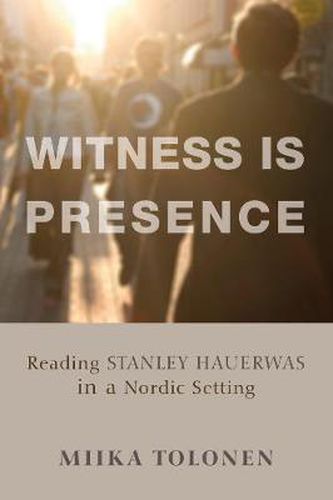Readings Newsletter
Become a Readings Member to make your shopping experience even easier.
Sign in or sign up for free!
You’re not far away from qualifying for FREE standard shipping within Australia
You’ve qualified for FREE standard shipping within Australia
The cart is loading…






This title is printed to order. This book may have been self-published. If so, we cannot guarantee the quality of the content. In the main most books will have gone through the editing process however some may not. We therefore suggest that you be aware of this before ordering this book. If in doubt check either the author or publisher’s details as we are unable to accept any returns unless they are faulty. Please contact us if you have any questions.
In a postsecular cultural situation the conditions for understanding and communicating a Christian tradition have changed. None of the established religions can any longer claim monopoly in the marketplace of religions. A claim of this study is that a postsecular situation characterized, among other things, by dwindling memberships in established churches as well as a new visibility of alternative religious expressions, opens up a need to reflect on alternative ways of understanding Christianity in its context. This study focuses on the question, how can a Christian tradition be communicated understandably in a postsecular context? In traditional terms: how can Christian witness be understood in our situation? It is to this need, according to this study, that the ecclesiology of Stanley Hauerwas provides a meaningful perspective. This perspective becomes relevant because in a postsecular context a Christian church, even a folk church, cannot assume to be in a position of majority or power. There is, therefore, a need to ask how to understand Christianity as a community of witness that is neither in power nor a majority. The study suggests that embodiment of Christian convictions becomes a central factor in a meaningful postsecular notion of witness.
$9.00 standard shipping within Australia
FREE standard shipping within Australia for orders over $100.00
Express & International shipping calculated at checkout
This title is printed to order. This book may have been self-published. If so, we cannot guarantee the quality of the content. In the main most books will have gone through the editing process however some may not. We therefore suggest that you be aware of this before ordering this book. If in doubt check either the author or publisher’s details as we are unable to accept any returns unless they are faulty. Please contact us if you have any questions.
In a postsecular cultural situation the conditions for understanding and communicating a Christian tradition have changed. None of the established religions can any longer claim monopoly in the marketplace of religions. A claim of this study is that a postsecular situation characterized, among other things, by dwindling memberships in established churches as well as a new visibility of alternative religious expressions, opens up a need to reflect on alternative ways of understanding Christianity in its context. This study focuses on the question, how can a Christian tradition be communicated understandably in a postsecular context? In traditional terms: how can Christian witness be understood in our situation? It is to this need, according to this study, that the ecclesiology of Stanley Hauerwas provides a meaningful perspective. This perspective becomes relevant because in a postsecular context a Christian church, even a folk church, cannot assume to be in a position of majority or power. There is, therefore, a need to ask how to understand Christianity as a community of witness that is neither in power nor a majority. The study suggests that embodiment of Christian convictions becomes a central factor in a meaningful postsecular notion of witness.